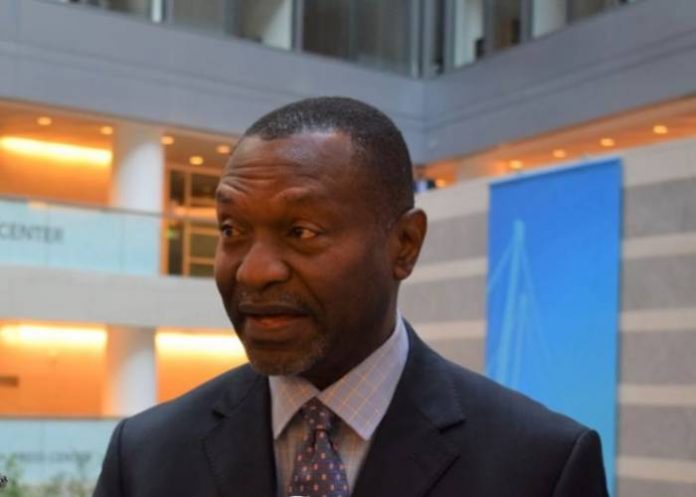
The federal government has expressed its determination to promote and increase indigenous participation in the shipping business in Nigeria.
The Minister of Budget and National Planning, Senator Udoma Udo Udoma, said this while speaking with the Nigerian Fleet Implementation Committee in Abuja, recently.
The minister who gave the indication while receiving the Committee members in his office, said government would provide necessary support to enable the committee carry out its mandate.
This was because increased indigenous participation in the maritime business would help in realising the country’s diversification drive, a major thrust of Nigeria’s Economic Recovery and Growth Plan (ERGP).
Specifically, a statement quoted the minister to have assured that apart from the fiscal incentives requested from government, the Ministry of Budget and National Planning was willing to provide any other necessary support to enable the committee succeed in its efforts to reposition the indigenous maritime sector and make it globally competitive.
The Fleet Implementation Committee was set up by the federal government primarily to encourage and promote private sector participation in the maritime business and by so doing help in the diversification of the economy.
Udoma acknowledged the importance of the maritime sector to the growth of business and the economy, and noted that apart from generating revenues for government, it also has the potential of creating wealth, providing jobs, generating foreign exchange, as well as developing the country’s transportation infrastructure.
While commending the committee members for the work they were doing, the minister assured that government was committed to growing the size of the indigenous fleet with appropriate incentives.
The Chairman of the Committee, Alhaji Bello, told the minister that maritime transportation remains a critical sector in the economy of several countries; but regretted that with its vast coastline and abundant natural resources, Nigeria’s huge maritime potentials are yet to be fully explored for the benefit of the people.
He explained that given the volume of cargoes that enter and leave Nigerian ports annually, the opportunity loss to Nigeria was huge because of Nigeria’s insignificant participation in the carriage of cargo to and from the ports.
“This gives rise to huge outflow of financial resources in terms of freight paid by Nigerians to foreign ship operators and increasing the GDP and economic well-being of their home countries,” he pointed out.
The committee consequently solicited government support to ensure that fleet development with requisite incentives becomes the focus of implementation priority in the transport infrastructure programme.



Comment here